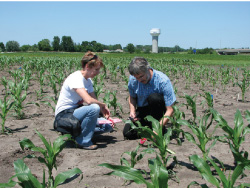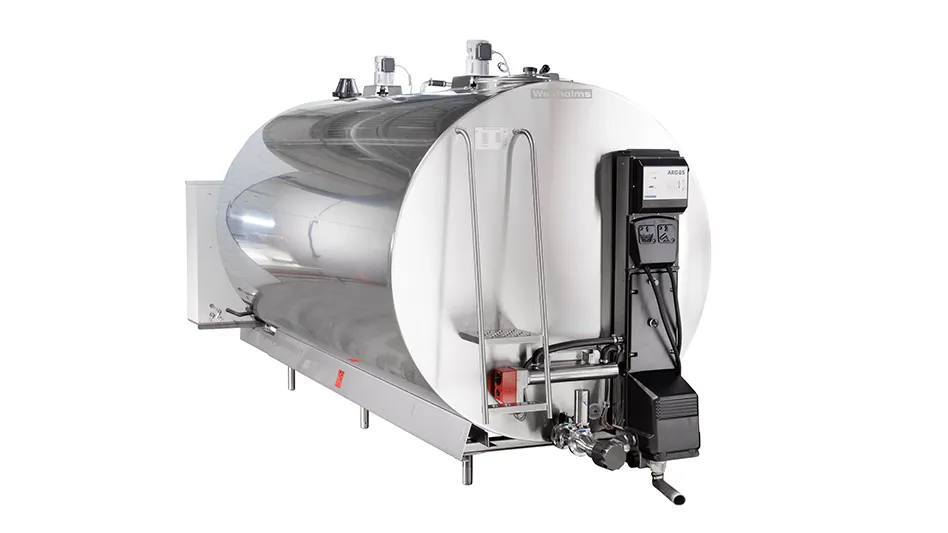 |
A recent USDA study, conducted by Minh Wendt and Jessica Todd, found that food prices have small but statistically significant effects on children’s BMI. Lower prices for some healthier foods, such as lowfat milk and dark green vegetables, are associated with decreases in children’s BMI. In contrast, lower prices for soda, 100-percent juices, starchy vegetables, and sweet snacks are associated with increases in children’s BMI. Specifically, results show that:
- A 10-percent price decrease for lowfat milk in the previous quarter is associated with a decrease in BMI of approximately 0.35 percent, or about 0.07 BMI unit for an 8- to 9-year-old.
- A 10-percent drop in the price of dark green vegetables (e.g., spinach and broccoli) in the previous quarter is associated with a reduction in BMI of 0.28 percent.
- A decrease in the price of sweet snacks during the previous quarter is associated with an increase in BMI of 0.27 percent.
- A 10-percent price increase for carbonated beverages one year prior is associated with a decrease of 0.42 percent in the average child’s BMI. The same price increase for 100-percent juices or starchy vegetables (e.g., potatoes and corn) is associated with a decrease in BMI of 0.3 percent one year later.
In addition:
- Soda prices have a greater effect on children in households with income below 200 percent of the federal poverty line.
- Prices for healthy foods, such as lowfat milk and green vegetables, have greater effects on higher BMI children than on children of average weight.
- Prices for less healthy food groups, such as carbonated beverages, fruit drinks, and starchy vegetables, have greater effects on BMI for children of average weight.
 Iowa State University Professor Alan Myers and Associate Scientist Tracie Hennen-Bierwagen work the fields in corn-yield research. Iowa State University Professor Alan Myers and Associate Scientist Tracie Hennen-Bierwagen work the fields in corn-yield research. |
Developing Corn for Warmer Climate is Focus of Research
The prospect of rising temperatures in Iowa and the Midwest is predicted to lead to a dramatic decline in corn yield. With a $5 million grant from the USDA, Iowa State University (ISU) researchers are looking to develop a corn variety that maintains the region’s high yields even as temperatures rise.
Alan Myers, professor, and Tracie Hennen-Bierwagen, associate scientist, both from the ISU‘s Department of Biochemistry, Biophysics, and Molecular Biology, hope to find a biochemical solution to warmer temperature yield loss. The study is part of the response within the scientific community to challenges issued by the National Research Council in its report, “New Biology for the 21st Century: Ensuring the United States Lead the Coming Revolution.”
This report recommends how best to nationally capitalize on recent technological and scientific advances that have allowed biologists to integrate biological research findings, collect and interpret vastly increased amounts of data, and predict the behavior of complex systems. As part of the USDA implementation, ISU researchers are part of a multidisciplinary team addressing the challenge of generating food plants that grow sustainably in changing environments.
Corn yield can drop by up to 25 percent when sustained temperatures rise from 90 to 95 degrees during corn grain filling, research shows. Yield losses of up to 40 percent are projected in tropical and subtropical areas by the end of the 21st century. One important issue that scientists don’t yet understand is how temperature affects seed metabolism.
“The plant part functions fine as long as irrigation is adequate,” Hennen-Bierwagen said. “The plant sends sugar up to the seed at normal levels. But the seed is not able to make that sugar into starch as efficiently at high temperatures. Something is happening there and we don’t know what. That’s our focus.” If they can locate the responsible genes, she added, their findings could be used for other crops.
As part of a multidisciplinary team, Myers and Hennen-Bierwagen joined forces with researchers from the University of Wisconsin, Madison, and the University of Florida (UF), Gainesville, to test plants under the differing conditions of the three climate zones. The principal investigator for the overall research is Florida’s Curt Hannah.
Del Monte VP Addresses FSMA Challenges
With the food industry seeing a major overhaul in food safety laws with the Food Safety Modernization Act (FSMA), Del Monte Foods Vice President and Associate General Counsel Tim Ernst recently addressed some of the top questions related to the Act.
Q: What are the biggest challenges the food industry faces with FSMA?
A: We immediately started training our employees on the requirements of the new law. The biggest challenge we see is understanding and implementing the law when the FDA has not yet issued governing regulations. While the import of the law is clear, many of the details remain to be determined. This lack of clear guidance is the largest challenge.
Q: What are the triggers of a food recall and when should one be implemented?
A: We generally become aware of a situation through our internal quality control process or a contact from a consumer. When we become aware of a potential problem, we immediately launch an investigation to determine if, in fact, there is an issue. We have a crisis response team and crisis response plan in place, which can be activated on very short notice. If a situation is such to warrant a withdrawal or recall, we will immediately implement the steps to address the situation.
Q: What are the appropriate steps that should be taken for a company to regain full consumer confidence after a recall?
A: It is very important during a recall to be honest and transparent with regulators and the public. Also, if there is a problem, it is important to take the necessary steps to effectively address the problem; half steps are not enough. Once the recall is complete, the root cause needs to be determined and the company needs to implement additional controls, if called for, to make sure the problem does not happen again. Being upfront with the public and conscientious in implementing a fix is necessary to regain full consumer confidence after a recall.
Q: How important is it for a food company like Del Monte to have a crisis management program in place prior to an emergency situation unfolding?
A: It is critical for all consumer packaged goods companies to have a crisis management program in place prior to an emergency. Once the emergency occurs, you will be scrambling to address the situation. It is important to have a plan in place so that you are not making it up as you go along.
Q: Why do you think food recalls are becoming more and more common? [According to FDA statistics there has been an increase in food recall activity in recent years.]
A: The supply chain is becoming increasingly complex which may contribute to the increase in the number of recalls. Ingredients are now sourced from all over the world and from hundreds of different suppliers, which leads to more opportunities for breakdowns in the process. I also think that there is a greater awareness today of allergens and potential allergens, which is the largest driver of recalls.

Explore the August 2011 Issue
Check out more from this issue and find you next story to read.
Latest from Quality Assurance & Food Safety
- FDA Publishes Landmark Final Rule to Enhance the Safety of Agricultural Water
- The Wendy's Company Reports 2023 Corporate Responsibility Progress
- Local Bounti Opens New Controlled Environment Agriculture Facility
- Tröegs Partners with Patagonia Provisions to Introduce Kernza Lager
- Neogen Launches New Molecular Method for Detection of Two Salmonella Serotypes
- Standard Meat Company Appoints Keith Blanks as Chief Commercial Officer
- USDA Finalizes Policy to Protect Consumers from Salmonella in Raw Breaded Stuffed Chicken Products
- Comedian Vanessa Bayer Explores the World of Dairy Farming in ‘Dairy Diaries’




